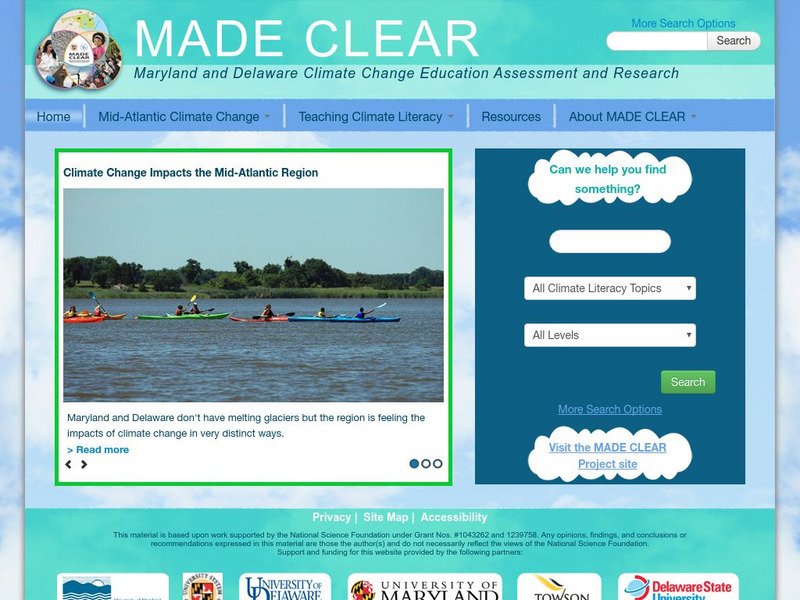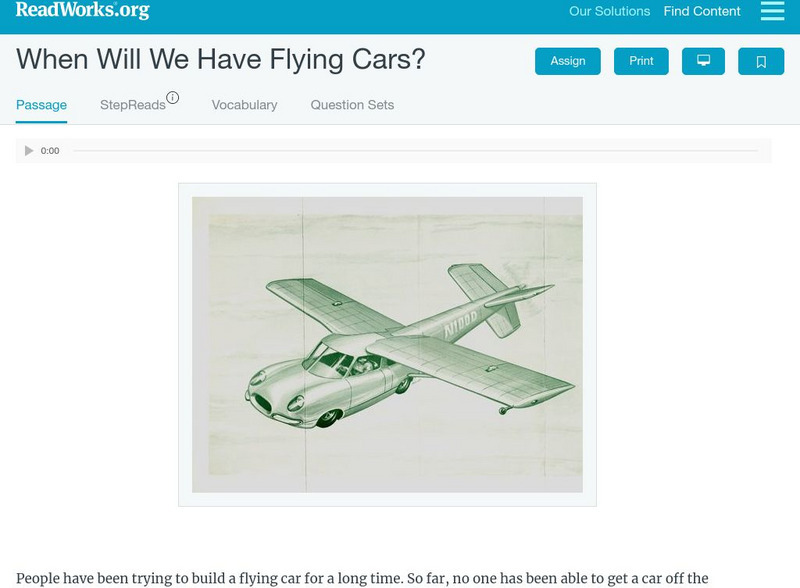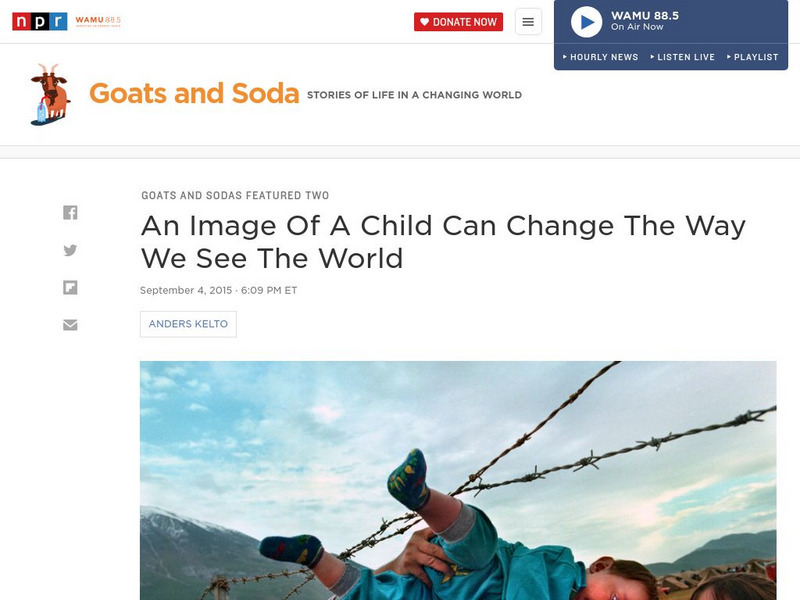Hi, what do you want to do?
College Board
Why We Use Theorem In Calculus
Young scholars read an article to explain the reasoning behind theorems. In this calculus lesson, students understand the underlying principles of theorems and how it helps them make sense of the problems. They know why they do what they...
NASA
Blinded by the Light!
Pupils learn of multiple ways astronomers look for planets outside of the solar system. By completing a hands-on activity, scholars discover that trying to see the planets directly because of the glare from the nearby star is nearly...
NASA
Packing for a L-o-o-o-ng Trip to Mars
Pack just enough to fit. Crews determine what personal items to take with them on a trip to Mars. Each team must decide what to take with them on a two-and-a-half year trip to Mars and whether their items will fit within the allotted...
NASA
Catch a Gravitational Wave, Dude!
It is cowabunga time! Pupils read an article about the NASA LISA mission on gravitational waves and conduct additional research on them. The class participates in a science bowl type competition about gravitational waves. Panels of four...
PBS
Tiger of the Snows: Tenzing Norgay
Tenzing Norgay, the Sherpa man who made history when he reached the summit of Mount Everest with Sir Edmund Hillary, is the focus of an informative article. Class members read about Norgay's perspective on the way up the mountain, the...
NASA
Water Works on a Blue Planet
Keep within a water budget. Learners find out that less than 2.5% of Earth's water is available to drink—and that there is a fixed amount of water. Scholars read an interesting article comparing the available water to a game of Monopoly...
NASA
Taking a Cold, Clear Look at the Universe
Take a look with another perspective. Pupils read to find out what portion of the electromagnetic spectrum a space telescope sees and the difficulties of viewing infrared radiation from other objects in space. Individuals discover how...
NASA
Speaking in Phases
Hear from deep space. Pupils learn how satellites transfer information back to Earth. They learn about three different ways to modulate radio waves and how a satellite sends information with only 0s and 1s. Using sound, class members...
NASA
From Smoke Signals to Cell Phones: Tracing How Technologies Evolve
Explore the science of space exploration. Pupils consider technological advances in propulsion, communication, power, navigation, and imaging. They select one of these areas and create a timeline of historical progress that contributed...
NASA
Keeping Nine Eyes on the Weather
Take a look at climate change from another angle. Readers learn about the MISR instrument on the Terra satellite and how it studies Earth. Pupils experience how the multiple cameras give scientists multiple views so they can better study...
Smithsonian Institution
Tween Tribune: Week of 4 4 16: Why Do We Sneeze?
Article answers the question, why do we sneeze?
Khan Academy
Khan Academy: Gauguin, Where Do We Come From? What Are We? Where Are We Going?
"Where do we come from? What are we? Where are we going?" is a huge, brilliantly colored but enigmatic work painted on rough, heavy sackcloth. It is Paul Gauguin's largest painting, and he understood it to be his finest work. View...
Other
Center for Ecoliteracy: New York Times Magazine: We Are What We Eat
This article discusses the overproduction of corn and how it is contributing to obesity in our population. Corn, a starchy substance, is in everything we eat and drink. It explains the effect and what needs to be done to reduce it.
Khan Academy
Khan Academy: Mistakes Can Be Good if We Learn From Them!
Mistakes are a natural part of the learning process, and how we react to them can be either harmful or helpful. Listen as kids discuss their experiences with mistakes.
National Constitution Center
National Constitution Center: We the Civics Kids
Is America more like a melting pot or tossed salad? See if you can answer that question after reading "We the Civics Kids" which focuses on the diversity of cultures that make up America. Learn about different foods, languages, and...
Other
Technology Resources: Resources Are Things We Need to Get a Job Done [Pdf]
Resources are things we need to get a job done. Every technological system makes use of seven types of resources: people, information, materials, tools and machines, energy, capital, and time.
Other
Pocket Lint: Life in the Future: Tech That Will Change the Way We Live
Technology has the power to do many things, and changing the world is one of them. We're privileged to be living in a time where science and technology can assist us, make our lives easier, and rethink the ways we go about our daily...
Thinkport Education
Thinkport: Made Clear: What Can You Do? What Can We All Do?
Can we do anything to slow climate change or prepare for the problems it brings? Yes, people across the globe are working on solutions.
Thinkport Education
Thinkport: Made Clear: How Can We Adapt and Respond?
Find out how people are studying and predicting the impacts of climate change so that we can slow down the changes and prepare for what lies ahead.
Read Works
Read Works: When Will We Have Flying Cars? By Linda Ruggieri
[Free Registration/Login Required] This passage is about the possibility of flying cars in the future. A comprehension question set and a vocabulary worksheet are also provided.
NPR: National Public Radio
Npr: An Image of a Child Can Change the Way We See the World
Article reports on the power of imagery to change how people perceive various crises and how they affect children.
Smithsonian Institution
Tween Tribune: If We Don't Need an Appendix, Why Is It There?
Article presents a theory regarding the role of the appendix in the human body.
PBS
Kqed: Mind Shift: Creating Classrooms We Need: 8 Ways Into Inquiry Learning
Read these eight quick suggestions you can use with your students to begin infusing inquiry-based learning into your instruction.
New York Times
New York Times: What Students Are Saying About How Much They Use Their Phones, and Whether We Should Be Worried
New research challenges assumptions about the negative effects of social media and smartphones on children. Reporters asked teenagers whether their parents should worry about how much time they spend on their devices. This article...
Other popular searches
- If We Must Die
- Plant Parts We Eat
- Technologies We Use
- Ways We Communicate
- We Are Marshall
- Plants We Eat
- If We Had No Moon
- We the People
- How We See
- We Beat the Street
- How Do We Celebrate
- How We Hear Sound

























